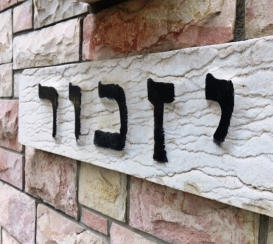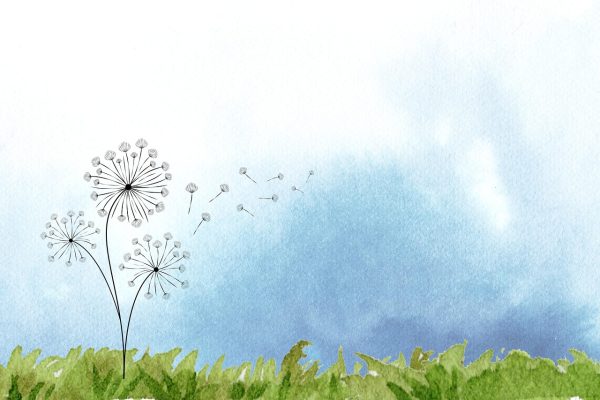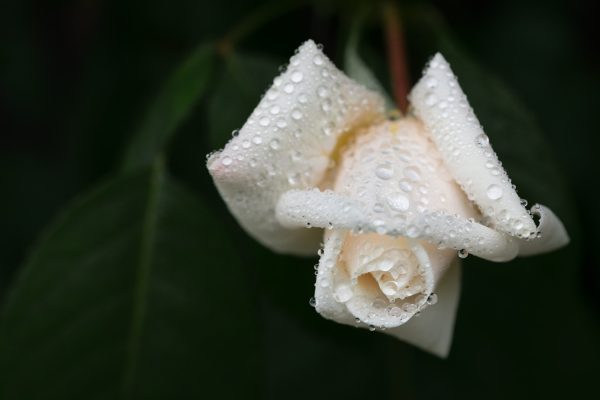Grief and memory hold hands
as, broken-hearted, we find our way through the Jewish year.
as, broken-hearted, we find our way through the Jewish year.
Grief and memory hold hands as we search for solace,
as we travel from impermanence to joy, from narrowness to freedom,
to wisdom and learning, to renewal and return.
Such that when we return to them in this moment of memory –
Yizkor – on Yom Kippur:
we remember them as if it were only yesterday that they were here
and we are broken-hearted because now they are not.
*
Grief and memory hold hands
as brokenhearted we find our way from impermanence to joy …
How do you remember that first Sukkot after he died?
It was autumn. The leaves were changing as your life was changing.
And when the winds blew through the sukkah,
they said the custom was to invite ushpizin, cherished guests to join you.
And so you invited him. You saved him a seat and a slice of his favorite cake
in case he showed up …
When the lulav’s weeping willow sheaves accidentally brushed your neck
you thought maybe, maybe it was him …
Or how the table felt emptier in his absence
The kids who seemed to have grown a foot sniffed the etrog that represents our hearts
and your heart felt broken.
They call Sukkot z’man simkhateinu, the season of our joy.
But the leaves were changing and your life was changing
and you did not feel the joy.
As the rains fell you were soaked in the earth’s tears …
Do you remember that first Sukkot after he died?
When they said: this is the festival of impermanence.
There is a time for everything.
And you finally got it.
The kids were growing up, the last smile you shared seemed
further and further away.
He was gone now and even your memories seemed to soften …
And in the silence,
Yizkor Elohim, God remembered
and you remembered
his touch – like the wispy lulav sheaves,
his heart – giant and sweet like that yellow fruit,
his inner strength – which could long endure the winds and rains.
Sukkot Yizkor, z’man simkhateinu,
you remembered him
and you felt joy and impermanence
bound up together.
*
Grief and memory hold hands
as, broken-hearted, we find our way from narrowness to freedom …
And then came springtime…
And the snow was melting and the flowers were coming
back to life …
And do you remember how we set the Passover table,
covered in her lace tablecloth, setting it up just as she would have?
But the matzo balls were wrong.
They sunk, hers would float.
And the salt water of Passover tears
stung all night in our mouths
that were to be filled with freedom’s joy.
And do you remember when we opened the door for Elijah
and the dog ran away?
And she laughed so.
How we left Elijah a goblet full of wine?
And how was it that the wine always disappeared right before our very eyes?
How was it that the haroset was always just so?
And how was it that everyone really listened to one another’s questions?
And every grandchild found the afikomen?
And remember when everyone
shared with her a few minutes that felt like forever
to unburden the narrowness in their lives, feeling freed by her love?
And how was it that she was not at the head of the table?
She was nowhere to be found!
Why didn’t she enter through Elijah’s open door?
They call Passover z’man heiruteinu, the season of our freedom.
But you did not feel free, even as renewal sprouted forth freely from the earth.
The grandkids were growing up.
The last hug you shared seemed further and further away.
She was gone now and your memories blurring …
Worn down by your grief, in the silence of Yizkor,
Yizkor Elohim, God remembered
and you remembered:
Her love – sweet like tzimmis,
Her strength – birthing you from the narrows and freed!
Her voice – strong like Miriam’s song at the shores of the sea.
Passover Yizkor, z’man heiruteinu,
in remembering her,
you felt grief and joy bound up together.
**
Grief and memory hold hands
as, broken-hearted, we find our way to wisdom and learning …
They say at Shavuot, z’man matan torateinu, the time of the giving of Torah,
they say that we all stood there together.
Even those who were not yet to be.
And even those now part of the long ago living …
Do you remember when you stood beside them
awaiting this great wisdom of the world?
Whether at temple, at the bus stop,
at their desk or in their study?
Together, how you listened and you wondered
and you questioned the greatest of life’s truths?
When they said – this is the festival of teaching and learning,
of blintzes and cheesecake.
How sweet, you thought.
And in the silence,
Yizkor Elohim, God remembered
and you remembered:
when you sat patiently beside them as they learned, letter by letter, to read.
And you remembered when you ran alongside them as they learned, pedal by pedal, to ride.
And you remembered your worry and fear as they learned, stoplight by stoplight, to drive.
And you remembered how you held them when they cried.
Or how you waited up late at night, when curfew they did not abide.
And you remembered how they taught you to be you
And you taught them to be them.
Whether your child, your sibling, your parent, your beloved,
your teacher, your friend, or the generations of your loved ones,
your memories of them soften
in the archives of your mind.
But what they taught you remains
etched on the parchment of your soul.
Shavuot Yizkor, z’man torateinu, the season of Torah,
You remembered them:
a legacy of wisdom and personal growth
bound together.
**
Grief and memory hold hands
as, broken-hearted, we find our way through the year.
From birthdays to anniversaries,
first days of school to graduations,
from breakups to weddings,
from simkhas to struggles and back to simkha again …
from holiday to holiday to holiday,
and Yizkor to Yizkor.
And in this moment of Yom Kippur Yizkor,
we remember them as the hunger grieving inside of us
longs for more than a break-fast meal.
For we yearn to hold them and we yearn to be held by them.
We remember their foibles and forgive their faults.
We remember them for who they were
and we try to forgive them for who they could not be,
for the pain we caused them and the pain they caused us …
And we forgive ourselves for what of them we forget,
or haven’t yet but one day will …
As “why did you have to leave me” becomes
“I forgive you for leaving me,
but, oh, how I wish you would walk through the door
to comfort me in my tears …”
In this moment of Yizkor on Yom Kippur.
Grief and memory hold hands
as, broken-hearted, we are bound together
in our impermanence and our joy,
in our narrowness and our freedom,
nourished by wisdom, assuaged by forgiveness.
Four times each year on Yizkor
And, yes, of course, every single other day,
Yizkor Elohim
God remembers them
And so do we.












